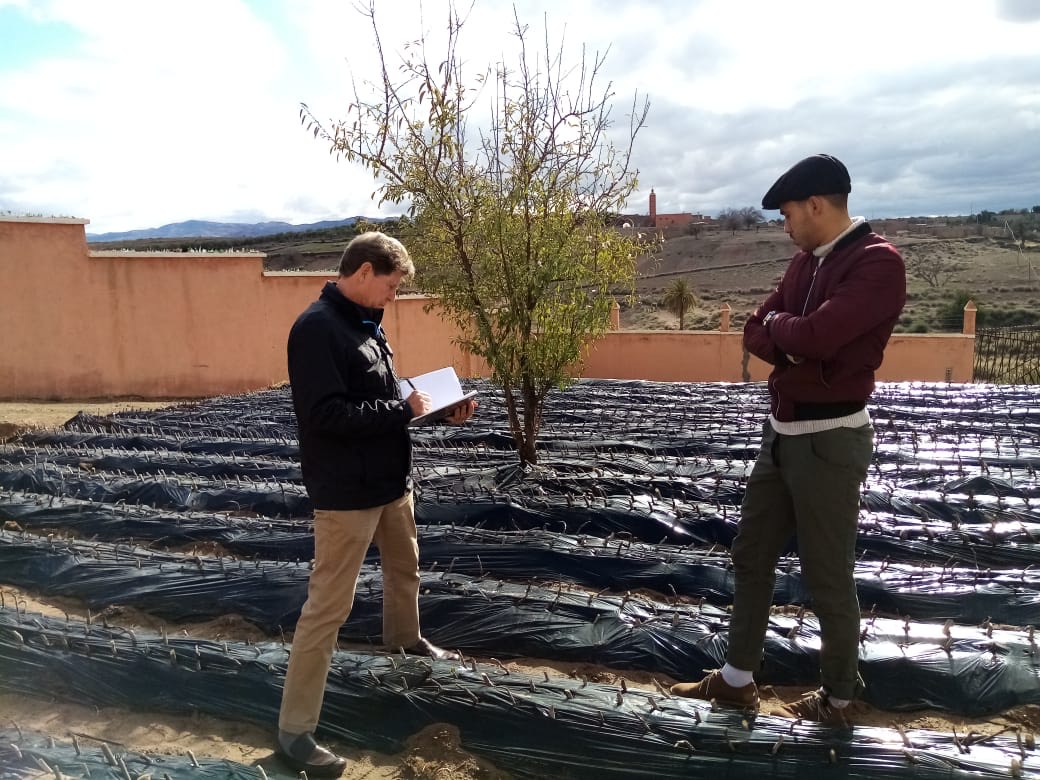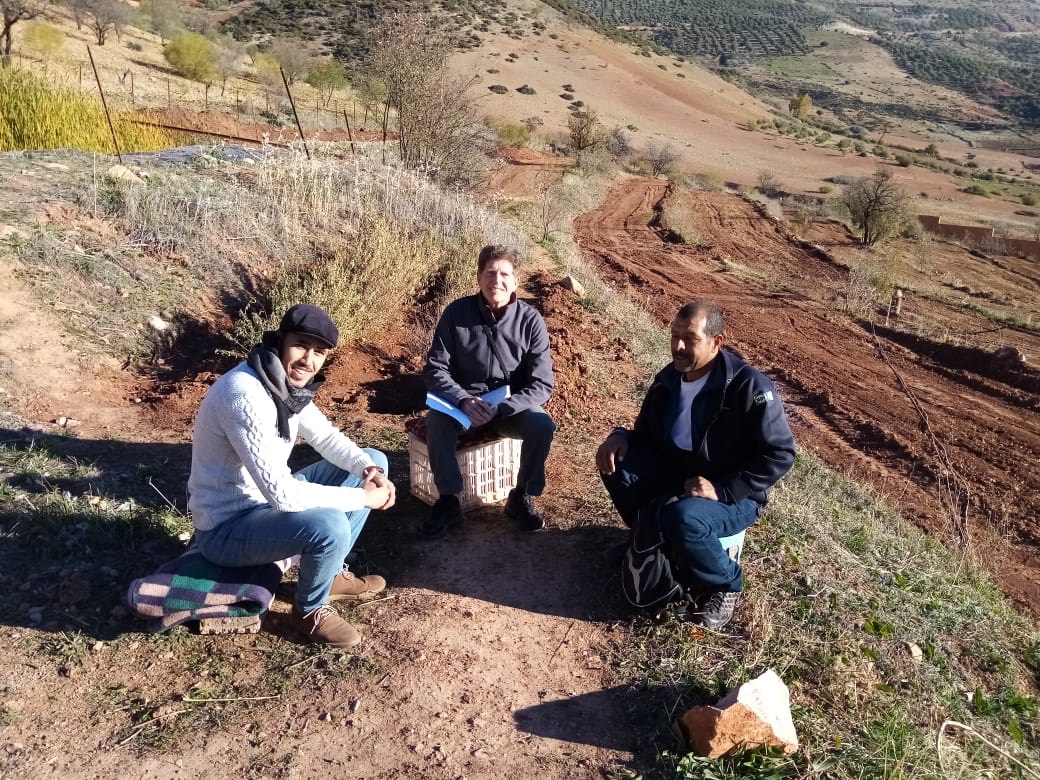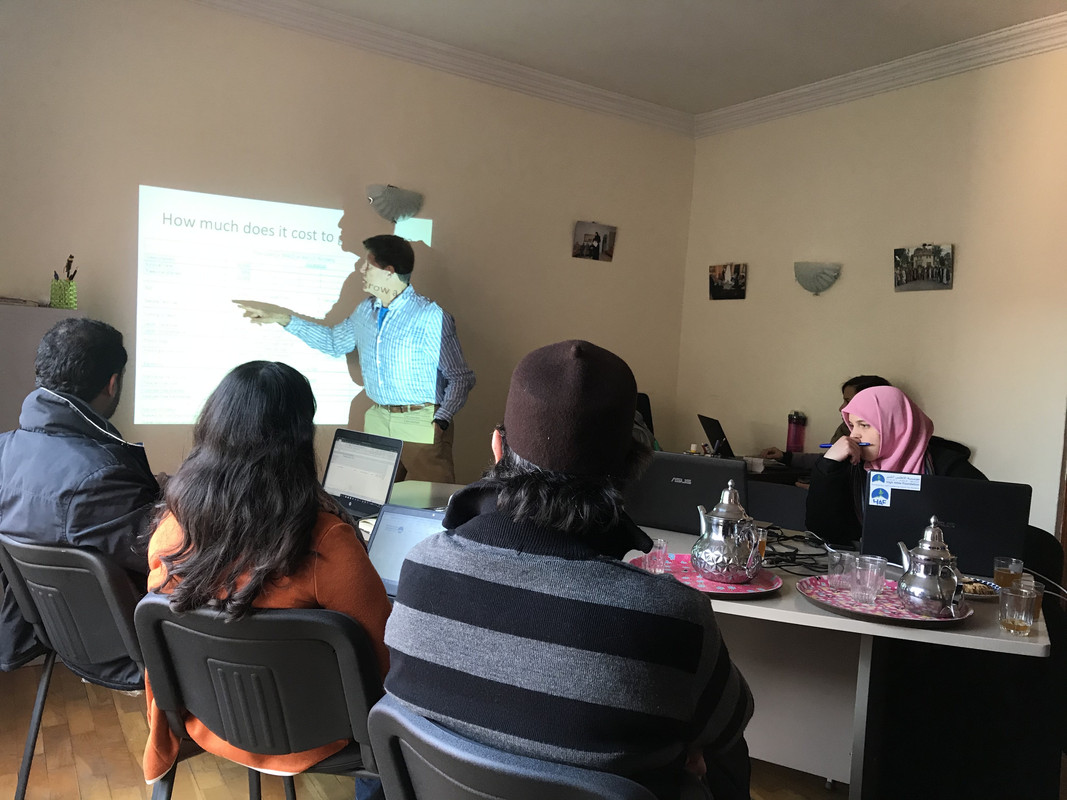Farmer-to-Farmer Volunteer
I am a late career American businessman. Currently, I volunteer about four times each year with NGOs in developing and middle-income countries. I assist across a range of business disciplines (marketing, sales, strategic planning, and organizational improvement.) Over the past 10 years, I have conducted 55 volunteer assignments in more than 20 countries.
I am just now completing a 15 day volunteer business assignment in Marrakech, Morocco. My client is the High Atlas Foundation (HAF), a United States and Moroccan NGO offering as its core mission the operation of 11 tree nurseries in Morocco. These nurseries provide fruit and nut trees at no- or low-cost to communities, schools, hospitals, and small farmers. Recipients of the trees earn revenue from the resultant fruits and nuts, use the trees as windbreaks, and, at schools, provide lessons in agriculture for students.

My specific assignment has been to evaluate four of HAF’s tree nurseries, determine their needs – especially blockages to their growth – and propose follow-up activity to address their needs. Each nursery had its own special set of needs. Some needs are beyond my expertise, so I am developing recommendations to HAF to bring in expert volunteers to support areas where I am deficient. For example, HAF will need a cost accountant to establish tracking of financial results and to calculate payback of greenhouse construction. Other needs include soil analysis, nursery operations, and cooperative leadership and management.
One of the nurseries I evaluated is being run by a women’s cooperative. This female co-op was granted the franchise to manage the nursery about one month ago without any prior training. To ensure that this group is not being set up to fail, HAF has already conducted co-op management lessons for the women as well as introductory nursery operations classes. I did my small part by delivering marketing and sales instruction.

The Moroccan Ministry of Agriculture has established a goal of planting one billion trees in the country. I suspect no one thought to run the numbers to determine that planting so many trees would actually take close to 1000 years. But on the positive side, it does provide an attention-grabbing aspiration. And HAF is doing its part to chip away at that one billion tree goal.
After viewing four existing nurseries for HAF, I was asked to conduct a site visit to a prospective new nursery. But there was a special twist to this land. It is currently occupied by a 300-year-old Jewish Cemetery. The Jewish population of Morocco has dwindled from 250,000 after World War II to about 2,200 today. The small but active remnant community has discovered that offering old cemeteries to HAF as tree nurseries actually helps to preserve them as historical and memorial sites for diasporic Jews to return to and visit. As long as no gravesites are damaged, the disused cemeteries actually receive refurbishment and ongoing care from a joint nursery/cemetery caretaker.

HAF does more that grow and distribute trees. It provides social services to poor communities. For example, one small village in the High Atlas Mountains has no nearby source of clean drinking water. Consequently, the village girls (but not the boys) spend 16% of their time fetching water from a distant source. Of course, such a time-consuming daily task cuts into their education. In fact, not a single girl in the village attends school beyond the sixth grade. HAF has offered to pay for and organize a clean water source in the village. Just one caveat: every household in the village must sign a contract that they will send their daughters to school beyond primary school. All families must sign on before HAF will pay for the water. As of my writing, HAF is expecting their collective response any day now.
And now as I wrap up my volunteer assignment I thank HAF for 15 pleasurable and professionally satisfying days.